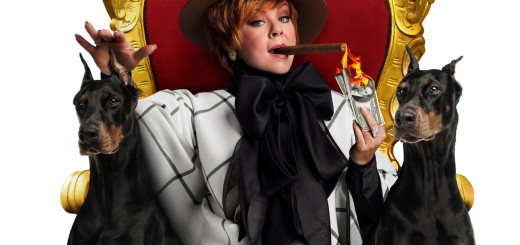How To Become a “True Fan” Yourself
In my last post I gave an introduction to the theory of 1,000 True Fans.  Let’s start by once again quoting The Technium’s article on 1,000 True Fans:
 “A True Fan is defined as someone who will purchase anything and everything you produce. They will drive 200 miles to see you sing. They will buy the super deluxe re-issued hi-res box set of your stuff even though they have the low-res version. They have a Google Alert set for your name. They bookmark the eBay page where your out-of-print editions show up. They come to your openings. They have you sign their copies. They buy the t-shirt, and the mug, and the hat. They can’t wait till you issue your next work. They are true fans.”
That sounds pretty great, right?  Someone who will follow your every move, attend all your appearances and hunt down all your releases?  I think it sounds pretty great too – but it is completely unreasonable as something to objectively achieve.  Are you currently a fan of  anyone to the lengths that are described above?  I personally am not.  There are some artists I watch and consider myself a fan of, but I don’t check my judgement at the door and just snap up everything that artist ever does.
To summarize, True Fans are the people who truly support an artist. Â They are not mindless consumers or nameless, faceless masses. Â Having people spend $100/year on you is a fraction of what a True Fan can be. Â They are friends and treating them as friends is an important way to pay them back for their support.
I believe that in order for people to achieve the goal of 1,000 True Fans it is important to become a True Fan yourself. Â Here are some truly helpful examples that go beyond spending $100/year on an artist:
Help People Who Need True Fans
One of the best ways to become a True Fan is to start by identifying some people who really need some True Fans.  These are people who are either moderately successful but not well-known, or someone that you are aware of and few others are.  Look for people starting new channels on YouTube that you either like or that show potential for greatness.  Check out a few local shows in town by bands that are either just getting their first album made or have hit some kind of glass ceiling in their success.  Get to know them, personally if you can by reaching out to them the day after their show or through a mutual friend.  Follow them on Twitter and try to connect with them on Facebook or email as a way to stay in touch.
Treat People as Actual Friends
It’s important that you position yourself as someone who is working in their best interest but not willing to just be a passive audience member. Â Don’t resort to flattery or gush at them over anything they write or do – just be yourself and treat the people and their time with respect.
Use Social Media Properly
Use social media to keep up with people and share ideas. Â Twitter is my current favorite for this. Â Most people read their Twitter when they are truly bored and looking for something to do. Â The message size limit also helps immensely. Â If you can fit the idea into a tweet it is that much easier to respond to and have a broader conversation about. Â If you can have the conversation in person, that’s always going to work better. Â When you see people, tell them that you realize this and that your efforts to talk to them through social media are to respect their time, not to badger them. Â The online conversations always go better after an initial face-to-face.
Don’t Keep Secrets
True Fans don’t keep things they love to themselves – they share. Â Share your favorite artists and brands the best way that you’re allowed to. Â If you can give copies of their album away – do it! Â If they have a great video on YouTube share it with people. Â Let people know if you’re going to see a band’s show. Â The best way to start is to convince the artist to give you something that you can duplicate and give out for free. Â Even a single song is a start – you can have a stack on hand or make mix CDs to share your new discoveries with your friends. Â One of my favorite things about being a music fan is sharing my discoveries with someone new.
Don’t Inflate Yourself
Avoid being dishonest.  Don’t over-inflate anyone’s successes or your own capabilities.  The right time to tell a band you can get them the Friday night headlining spot at that great venue is after the booking agent confirms it.  Don’t promise the world – be totally honest always.  It’s always better to say “here’s what I can do to try and make this happen” than “I can get you 100 new Facebook likes from real people by tomorrow.”
Share Ideas
If you help a band get a bunch of attention on their YouTube video, talk to the other bands you know about it.  Repeating campaigns or tactics usually ends up with those ideas being improved and expanded by everyone that tries them.  I regularly take on projects as experiments just to learn how to do something or to test a theory.  Promoting a band is an awful lot like promoting anything else.  If you want to get better at anything, you need experience and if your experience only exists within your own stuff, you’re too close to judge it effectively.  Help your favorite restaurant start a Facebook check-in campaign and learn how that’s done.  You’ll come back with a lot of great experience to share.
Connect People
Help connect people who have complimentary goals. Â Make introductions in the context of how you think two people might be of benefit to one another and make it known that you have something to offer the network of people you’re helping. Â If it doesn’t work, don’t force it. Â It often helps to give people the opportunity even if you’re 99% sure that they’ll say no. Â For example, I was talking with a musician from out of town recently when I found out that one of my brother’s upcoming shows needed an opener. Â I offered him the show on the spot, knowing that in all likelihood he couldn’t do it. Â It was too little notice and the trip would have required him to take a day off of work. Â But I let him tell me that – I never assume. Â By providing the opportunities even if people can’t or don’t take you up on it, you show that you’re truly invested in helping them and enter their “radar” for the future.
Offer Non-Financial Support
Supporting bands in non-financial ways are often the most helpful. Â Remember, these people are friends – so offer them the guest room or the couch next time they’re coming through town. Â Put out fliers or tell your co-workers how excited you are that they’re going to be playing some night after work. Â Chances are if you have a group of friends that like going out at all, you can make an evening out of it. Â Help people find babysitters so they can go. Â Be the designated driver.
(Don’t Just) Buy Stuff
Clearly, buying someone’s work is a great way to support them financially. Â But that’s not enough. Â True Fans need to go the extra mile to help the artist out. Â This can be anything from playing the album for friends at work or at a party, posting a review of the album on Amazon or telling fans of similar artists about the band. Â The more things people can experience on their own time, when they’re bored and receptive to a suggestion like watching a video, the better.
Conclusion
Being a True Fan gives you a real understanding of the type of relationships to foster to grow a base of True Fans of your own work. Â Learning how you like to be treated, what kind of help to ask for and the liberating feeling of being clear and honest about where you are in your career are all positive, consistent things to help you enjoy the moment and understand your next goals.
Don’t take my word for it…
Have a great idea on being a True Fan? Â Hit me up on Twitter, Facebook or Google+ and I’ll add some good ones back to this post!


